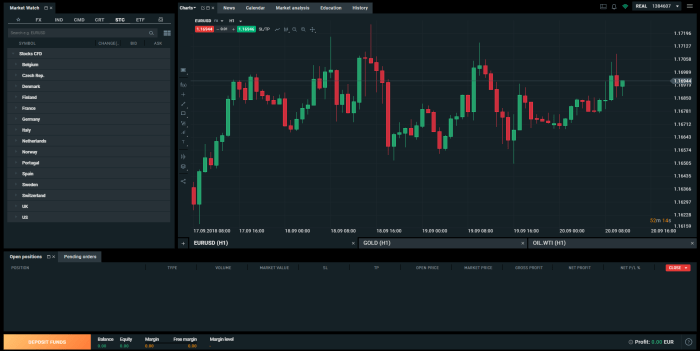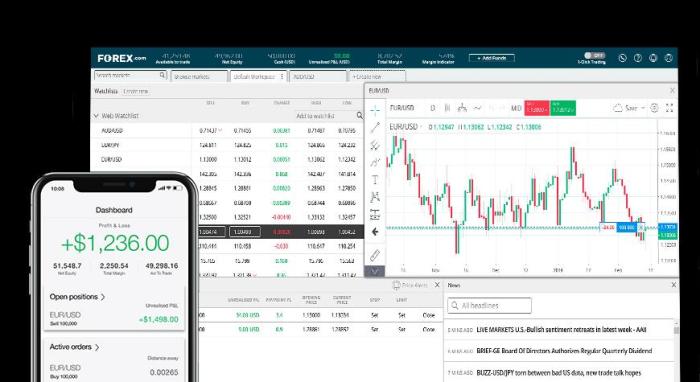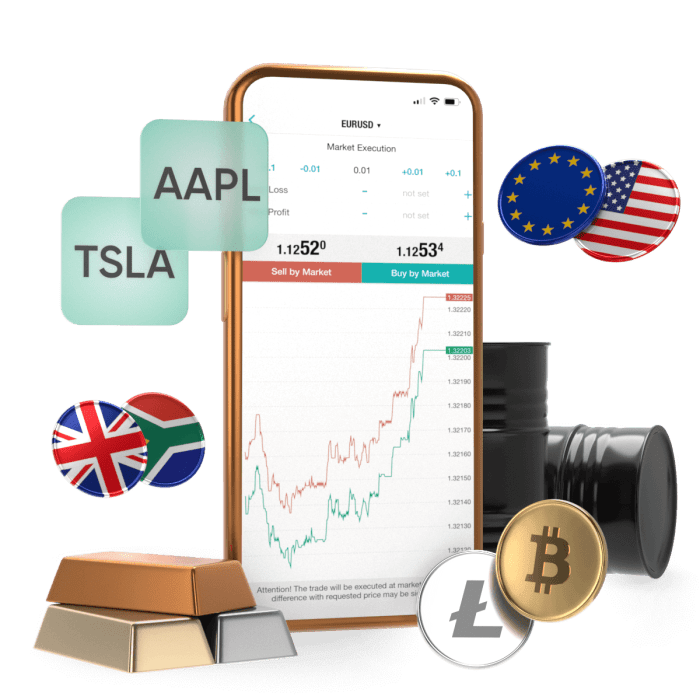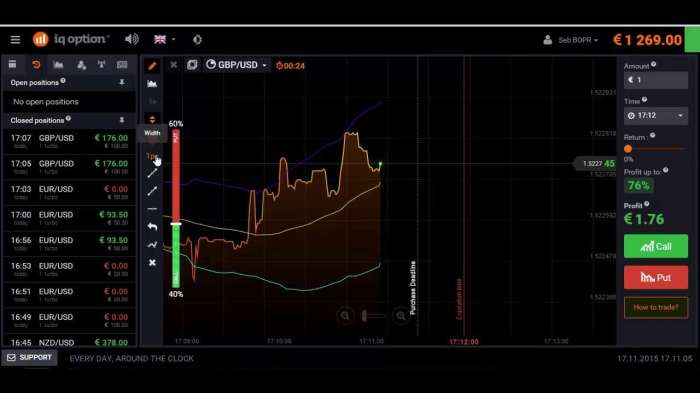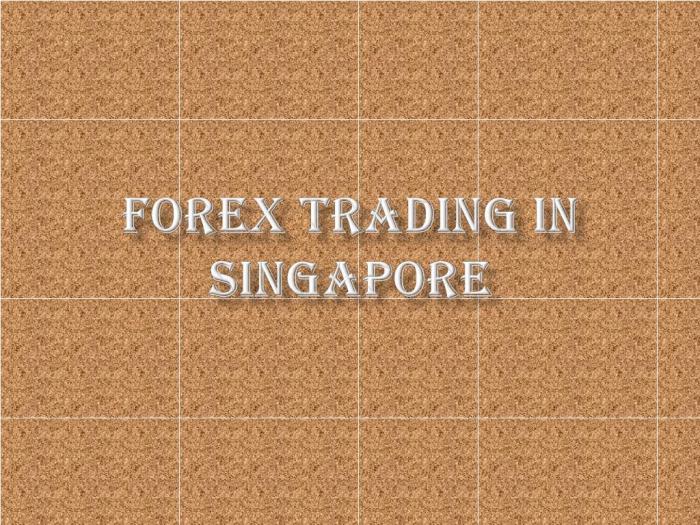
Forex trading Singapore: Think you can conquer the global currency market from the Lion City? It’s a thrilling world of high-stakes trading, where fortunes are made and lost in the blink of an eye. But before you dive headfirst into the exciting—and sometimes terrifying—world of forex, you’ll need a solid grasp of the rules, regulations, and risks involved. This guide breaks down everything you need to know about navigating the Singaporean forex scene, from understanding the legal landscape to mastering risk management strategies. Get ready to learn how to potentially profit from global currency fluctuations.
We’ll cover the regulatory bodies that keep things legit, the best trading platforms for your skill level, the tax implications of your wins (and losses), and essential risk management techniques. We’ll even explore the unique role of the Singapore dollar (SGD) in the forex market and the ethical considerations that every trader should keep in mind. Whether you’re a seasoned investor or just starting your forex journey, this comprehensive guide will equip you with the knowledge you need to confidently trade in Singapore.
Forex Trading Regulations in Singapore

Singapore, a global financial hub, boasts a robust and transparent regulatory framework for forex trading. This ensures investor protection and maintains the integrity of its markets. Understanding these regulations is crucial for both brokers and traders operating within Singapore’s jurisdiction.
Regulatory Bodies Overseeing Forex Trading
The Monetary Authority of Singapore (MAS) is the primary regulatory body overseeing forex trading and all other financial activities in Singapore. It sets the rules, monitors compliance, and takes action against any violations. While the MAS doesn’t directly regulate individual retail forex traders, their regulations heavily impact the brokers these traders use. The MAS’s oversight ensures a fair and stable trading environment. Other relevant government bodies might play supporting roles in specific areas like anti-money laundering (AML) and counter-terrorism financing (CTF) regulations, working in conjunction with the MAS.
Licensing Requirements for Forex Brokers
Forex brokers operating in Singapore must obtain a Capital Markets Services (CMS) license from the MAS. This license requires meeting stringent capital adequacy requirements, demonstrating robust risk management practices, and adhering to strict client segregation rules. The application process is rigorous, involving detailed financial audits and background checks. Failure to comply with these licensing requirements can result in hefty fines or even a ban from operating within Singapore. The MAS regularly reviews and updates these requirements to adapt to evolving market conditions and protect investors. The licensing process is designed to weed out less reputable firms and safeguard against fraudulent activities.
Comparison of Singapore’s Forex Regulations with Other Major Financial Hubs
Compared to other major financial hubs like London or New York, Singapore’s forex regulations are generally considered stringent and investor-focused. While the regulatory landscape in London, for example, might offer greater flexibility for brokers, Singapore prioritizes a high level of investor protection. This often leads to stricter capital requirements and more rigorous oversight. The regulatory environment in New York, while also robust, might have different focuses depending on the specific regulatory body involved. Singapore’s approach emphasizes a balanced ecosystem, promoting growth while safeguarding against excessive risk.
Key Legal Aspects Traders Should Be Aware of
Traders should be aware of the laws related to contract formation, disclosure requirements, and dispute resolution mechanisms. Contracts should be clear and unambiguous, outlining all terms and conditions. Brokers are legally obligated to provide transparent disclosure of fees, risks, and execution policies. In case of disputes, traders can seek redress through established legal channels or alternative dispute resolution mechanisms. Understanding these legal aspects is crucial for protecting traders’ interests and ensuring a fair and equitable trading experience. Ignorance of these regulations does not exempt traders from liability. Thorough due diligence is crucial before engaging with any forex broker operating in or from Singapore.
Popular Forex Trading Platforms in Singapore
Choosing the right forex trading platform is crucial for success in the Singaporean market. The platform you select will significantly impact your trading experience, from ease of use to the tools available and the fees you pay. This section explores some of the most popular options, highlighting their strengths and weaknesses to help you make an informed decision.
Popular Forex Trading Platforms Comparison
The forex market offers a variety of platforms, each with its unique features. The following table compares four popular choices, considering factors crucial to Singaporean traders. Remember that fees and minimum deposits can change, so always check the platform’s website for the most up-to-date information.
| Platform Name | Features | Fees | Minimum Deposit | User Reviews |
|---|---|---|---|---|
| MetaTrader 4 (MT4) | Widely used, customizable charting, automated trading (Expert Advisors), wide range of indicators, large community support. | Spreads vary depending on the broker; commissions may apply. | Varies depending on the broker; some brokers offer micro accounts with low minimum deposits. | Generally positive, praised for its reliability and customizability; some users find the interface dated. |
| MetaTrader 5 (MT5) | Improved version of MT4, offering more advanced charting tools, economic calendar, depth of market, and hedging capabilities. | Similar to MT4; spreads vary depending on the broker; commissions may apply. | Varies depending on the broker; similar to MT4. | Positive reviews, but adoption is slower than MT4; some users find it overly complex. |
| cTrader | Modern platform with a focus on speed and execution, excellent charting tools, and advanced order types. | Typically commission-based, with transparent pricing. | Varies depending on the broker; some brokers offer low minimum deposits. | Generally positive, praised for its speed and ease of use; some users find the community support smaller than MT4. |
| TradingView | Powerful charting platform with a massive community, advanced technical analysis tools, and a wide range of indicators; not a full brokerage platform. | Subscription-based for premium features; brokerage fees apply if used with a connected broker. | Varies depending on the connected broker; some brokers offer low minimum deposits. | Highly rated for its charting capabilities and community; some users find the integration with brokers can be complex. |
Advantages and Disadvantages of Each Platform
Each platform presents unique advantages and disadvantages. Understanding these is crucial for selecting the best fit for your trading style and experience level.
Technological Aspects of Popular Platforms
The technological aspects of each platform significantly influence the trading experience. MT4 and MT5 are known for their robust charting capabilities and extensive customization options, allowing traders to tailor their charts to their specific needs. cTrader prioritizes speed and execution, making it suitable for scalpers and day traders who require fast order processing. TradingView excels in its advanced charting tools and technical analysis features, attracting traders who prioritize in-depth market analysis.
Platform Suitability for Beginners vs. Experienced Traders
MT4’s large community and abundance of educational resources make it a relatively beginner-friendly platform. Experienced traders might prefer the advanced features and speed offered by cTrader or MT5. TradingView, due to its focus on charting and analysis, can be beneficial to both beginners and experienced traders, depending on their needs. Beginners might find it helpful for learning chart patterns and technical analysis, while experienced traders can leverage its advanced features for in-depth market research.
Tax Implications of Forex Trading in Singapore
Forex trading in Singapore, while potentially lucrative, isn’t tax-free. Understanding the tax implications is crucial for maximizing your profits and avoiding penalties. The Inland Revenue Authority of Singapore (IRAS) treats forex trading profits as income from business, and this has significant implications for how your earnings are taxed.
Taxation of Forex Trading Profits
Profits derived from forex trading are considered business income in Singapore and are therefore subject to income tax. This means you’ll need to declare your trading income and expenses on your annual tax return. The tax rate applied will depend on your overall income for the year, falling under Singapore’s progressive tax system. Unlike some countries where capital gains taxes might apply differently, Singapore’s tax system focuses on the overall income generated, regardless of the source. This includes profits from both short-term and long-term forex trading activities. Accurate record-keeping is paramount, as the IRAS will require detailed documentation to verify your income and expenses.
Tax Deductions for Forex Traders
While forex trading profits are taxed, there are several deductions that can reduce your tax liability. These deductions are allowed for expenses directly related to your forex trading activities. This includes commissions paid to brokers, subscription fees for trading platforms and financial data services, and other directly attributable business costs. However, it’s crucial to maintain meticulous records of all expenses, as the IRAS scrutinizes these deductions. Only expenses directly and demonstrably linked to your forex trading can be claimed. Personal expenses, such as your computer or internet connection (unless solely dedicated to trading), are generally not deductible. Consult a tax professional for detailed guidance on allowable deductions to ensure compliance.
Comparison with Other Investment Vehicles
Compared to other investment vehicles in Singapore, the tax implications of forex trading are unique. For instance, dividends from stocks are taxed differently, falling under a separate tax regime. Similarly, interest income from bonds or savings accounts is taxed at a different rate. The key distinction with forex trading is its classification as business income, leading to a potentially higher tax rate depending on the trader’s overall income bracket. This contrasts with some investment strategies where capital gains taxes might apply at a lower rate or be exempt under certain conditions. Understanding these nuances is crucial for making informed investment decisions and comparing the overall tax efficiency of various strategies.
Hypothetical Tax Calculation Scenario
Let’s imagine a forex trader, Mr. Tan, who generated a net profit of SGD 50,000 from forex trading in a tax year. After deducting allowable expenses like brokerage fees (SGD 2,000) and software subscriptions (SGD 500), his taxable income from forex trading is SGD 47,500. Assuming his total income for the year, including his salary and other sources, places him in the 22% tax bracket, his tax liability on the forex trading income would be SGD 47,500 * 0.22 = SGD 10,450. This calculation is simplified and doesn’t account for potential other deductions or tax reliefs he might be eligible for. It’s vital to consult a tax professional for a precise calculation based on individual circumstances. This example highlights the importance of careful record-keeping and professional tax advice to accurately determine tax obligations.
Risk Management Strategies for Forex Trading in Singapore: Forex Trading Singapore
Forex trading, while potentially lucrative, carries significant risk. In Singapore’s regulated market, understanding and implementing robust risk management strategies is crucial for long-term success and protecting your capital. This section Artikels key strategies tailored to the Singaporean context.
Stop-Loss Orders and Position Sizing
Stop-loss orders are your safety net. They automatically close a trade when it reaches a predetermined loss level, limiting potential damage. Position sizing, determining how much to invest in each trade, is equally vital. A common approach is to risk only a small percentage of your account balance (e.g., 1-2%) on any single trade. For example, with a SGD 10,000 account and a 1% risk tolerance, your maximum loss per trade should be SGD 100. This ensures that even a series of losing trades won’t wipe out your account. Stop-loss orders, coupled with careful position sizing, form the bedrock of effective risk management.
Diversification in a Forex Portfolio
Don’t put all your eggs in one basket. Diversifying your forex portfolio across different currency pairs reduces the impact of any single trade going against you. Instead of focusing solely on major pairs like EUR/USD, consider incorporating less correlated pairs like USD/JPY or GBP/AUD. This spread reduces overall portfolio volatility and mitigates risk. For instance, if the Euro weakens unexpectedly, losses on EUR/USD might be offset by gains in another pair.
Calculating Position Size
Calculating the appropriate position size requires a clear understanding of your risk tolerance and account balance. A simple formula can help:
Position Size = (Account Balance x Risk Percentage) / Stop Loss (in pips)
Let’s say you have a SGD 5,000 account, a 2% risk tolerance, and place a stop-loss order 50 pips away from your entry point. Your calculation would be:
Position Size = (5000 x 0.02) / 50 = 2 units
This means you should trade 2 lots (or units, depending on your broker’s lot size). Remember that pips and lot sizes vary depending on the currency pair and your broker. Always double-check these details before entering a trade. This calculation helps ensure you stay within your predetermined risk parameters.
Educational Resources and Community for Forex Traders in Singapore
Navigating the world of forex trading in Singapore requires more than just a keen eye for market trends; it demands a solid foundation of knowledge and a supportive community. This section explores the available educational resources and the pros and cons of joining online forex trading communities, emphasizing the crucial role of continuous learning in achieving success in this dynamic market.
Reputable Educational Resources for Forex Trading in Singapore
Access to quality education is paramount for aspiring and experienced forex traders alike. A well-rounded learning strategy often involves a combination of different resources, catering to various learning styles and preferences. The following list highlights some reputable options available to Singaporean traders.
- Online Courses: Platforms like Udemy, Coursera, and edX offer various forex trading courses, ranging from beginner-level introductions to advanced strategies. These courses often include video lectures, downloadable materials, and quizzes to assess understanding. The quality and depth of these courses can vary significantly, so careful research and reading reviews are crucial before enrolling.
- Books: Numerous books delve into the intricacies of forex trading, covering technical analysis, fundamental analysis, risk management, and trading psychology. Examples include “Japanese Candlestick Charting Techniques” by Steve Nison and “Trading in the Zone” by Mark Douglas. Choosing books from reputable publishers and authors with proven track records is essential.
- Broker-Provided Resources: Many forex brokers in Singapore offer educational resources to their clients, including webinars, seminars, and trading guides. While these resources can be beneficial, it’s important to be aware that brokers may have a vested interest in promoting their services. Therefore, it’s crucial to critically evaluate the information provided.
- Seminars and Workshops: In-person seminars and workshops conducted by experienced traders or financial institutions can offer valuable insights and networking opportunities. These events often provide interactive learning experiences and the chance to ask questions directly to experts. Look for events organized by reputable financial institutions or experienced traders with proven track records.
Benefits and Drawbacks of Joining Online Forex Trading Communities
Online forex trading communities can be a double-edged sword. While offering valuable opportunities for learning and networking, they also pose certain risks.
Joining such communities can offer access to a wealth of collective knowledge, diverse perspectives, and the opportunity to learn from others’ experiences, both successes and failures. Discussions about trading strategies, market analysis, and risk management can significantly enhance one’s understanding. Furthermore, these communities can provide a sense of camaraderie and support, which is crucial in the often-solitary world of forex trading. However, it’s crucial to be discerning and critical. The information shared in these communities is not always accurate or reliable, and the presence of inexperienced or misleading individuals can be detrimental. The potential for misinformation, scams, and emotional manipulation is a significant drawback. It is important to approach these communities with a critical and discerning mindset, verifying information from multiple sources and exercising caution before acting on advice received.
For descriptions on additional topics like forex trading game, please visit the available forex trading game.
Importance of Continuous Learning in Forex Trading
The forex market is dynamic and constantly evolving. Continuous learning is not merely beneficial; it’s absolutely essential for long-term success. Market conditions change, new trading strategies emerge, and understanding these shifts is critical for adapting and remaining competitive. Continuous learning involves staying updated on global economic events, refining trading strategies, and adapting to changing market dynamics. Regularly reviewing past trades, analyzing successes and failures, and seeking feedback from experienced traders are crucial components of continuous improvement. This ongoing process of learning and adaptation is vital for navigating the complexities and uncertainties inherent in forex trading. Consider it an ongoing investment in your trading career.
Ideal Online Community for Singaporean Forex Traders
An ideal online community for Singaporean forex traders would prioritize quality over quantity. It would feature a robust moderation system to filter out misinformation and scams, ensuring a safe and trustworthy environment for knowledge sharing. This community would provide access to verified educational resources, expert insights from experienced traders, and opportunities for peer-to-peer learning. The community would also foster a culture of respectful discussion, constructive criticism, and collaborative learning. Regular webinars and workshops featuring industry experts could further enhance the learning experience. Furthermore, the platform should facilitate networking opportunities, allowing members to connect with other traders, mentors, and potentially even potential collaborators. Such a community would not only be a source of information but also a supportive network for Singaporean forex traders at all levels of experience.
The Singaporean Dollar’s Role in Forex Trading
The Singapore dollar (SGD), a relatively stable and globally traded currency, plays a significant role in the forex market, particularly within the Asia-Pacific region. Its value is influenced by a complex interplay of economic factors, making it an interesting instrument for both investors and traders. Understanding these factors is crucial for navigating the SGD’s fluctuations and developing effective trading strategies.
Factors Influencing the Value of the Singapore Dollar
The value of the SGD is primarily determined by the Monetary Authority of Singapore (MAS)’s managed float policy. This means the MAS doesn’t target a specific exchange rate but intervenes in the market to influence the SGD’s trajectory against a basket of currencies. Several key economic indicators significantly impact this policy and, consequently, the SGD’s value. These include Singapore’s economic growth, inflation rates, interest rate differentials compared to other major economies, global economic conditions (particularly those of its major trading partners like China and the US), and geopolitical events. Strong economic growth tends to strengthen the SGD, while high inflation might lead to depreciation. Furthermore, the MAS’s forward guidance on monetary policy significantly impacts market expectations and, therefore, the SGD’s exchange rate.
Volatility of the SGD Compared to Other Major Currencies
The SGD generally exhibits lower volatility compared to many other major currencies like the USD, EUR, or GBP. This relative stability stems from the MAS’s managed float policy, which aims to maintain a stable and predictable exchange rate. However, it’s not entirely immune to fluctuations. Periods of global economic uncertainty or significant shifts in the regional economic landscape can cause increased volatility in the SGD. For example, during major global crises like the 2008 financial crisis, the SGD experienced significant, albeit temporary, depreciation. While less volatile than many other currencies, traders should still carefully consider the potential for fluctuations and manage risk appropriately. Comparing the historical volatility of the SGD against other major currencies using standard deviation or other statistical measures would reveal this relative stability.
Trading Strategies Leveraging the SGD, Forex trading singapore
Given its relative stability, trading strategies involving the SGD often focus on exploiting smaller price movements rather than significant swings. Popular strategies include:
- Carry trades: If Singapore’s interest rates are higher than those in another country, traders might borrow in the lower-yielding currency and invest in SGD-denominated assets, profiting from the interest rate differential. However, this strategy carries currency risk.
- Range trading: Identifying a historical price range for SGD pairs (e.g., SGD/USD) and trading within those boundaries can be effective, especially during periods of low volatility. This strategy requires careful monitoring of support and resistance levels.
- News-driven trading: Significant economic data releases from Singapore or global events can cause temporary price movements in the SGD. Traders who can accurately predict market reactions to these events can profit from short-term trades.
Historical Events Impacting the SGD’s Value
Several historical events have significantly influenced the SGD’s value. The 1997-98 Asian Financial Crisis saw the SGD depreciate, reflecting the regional economic turmoil. Conversely, Singapore’s strong economic performance in the years following the crisis led to appreciation. The 2008 global financial crisis also impacted the SGD, albeit less severely than some other currencies, demonstrating the relative stability offered by the MAS’s managed float. More recently, the COVID-19 pandemic and subsequent global economic slowdown initially led to SGD depreciation, followed by a recovery as the Singaporean economy adapted and recovered. Analyzing these events and their impact on the SGD’s value offers valuable insights into the currency’s behaviour under various economic conditions.
Ethical Considerations in Forex Trading in Singapore
Navigating the world of forex trading in Singapore requires not only a sharp understanding of market dynamics but also a strong ethical compass. The high-stakes nature of this financial arena necessitates a commitment to responsible and transparent practices, ensuring fair play and the integrity of the market as a whole. Failure to uphold these ethical standards can lead to severe consequences, both legally and reputationally.
High-Frequency Trading and its Ethical Implications in Singapore
High-frequency trading (HFT) employs sophisticated algorithms to execute a large number of trades at incredibly high speeds. While offering potential benefits like increased market liquidity, its ethical implications warrant careful consideration. The sheer speed of HFT can create an uneven playing field, potentially disadvantaging less technologically advanced traders. Concerns around market manipulation through “spoofing” (placing orders with the intention of cancelling them before execution to manipulate prices) or “layering” (placing multiple orders at various price levels to create a false impression of market depth) are significant ethical challenges. Singapore’s regulatory framework actively works to mitigate these risks, but the constant arms race between regulators and HFT firms remains a key ethical consideration.
Transparency and Responsible Trading Practices
Transparency forms the bedrock of ethical forex trading. Open and honest communication with clients, particularly regarding potential risks and conflicts of interest, is paramount. Responsible trading practices encompass a commitment to adhering to all applicable regulations, diligently managing risk, and avoiding manipulative tactics. This includes avoiding practices like front-running (trading ahead of a client’s order) or churning (excessively trading a client’s account to generate commissions). The Monetary Authority of Singapore (MAS) actively promotes responsible trading through its regulatory framework and educational initiatives, emphasizing the importance of ethical conduct within the industry.
Potential Conflicts of Interest
Forex traders in Singapore can face various conflicts of interest. For example, a trader managing multiple accounts might prioritize one client’s interests over another’s, particularly if they are receiving preferential treatment or incentives. Similarly, a trader might be tempted to engage in personal trading that conflicts with their fiduciary duties to clients. The potential for conflicts of interest necessitates a robust system of checks and balances, including clear guidelines on conflict resolution and transparent disclosure of potential conflicts. Independent audits and regulatory oversight play a crucial role in mitigating these risks.
Consequences of Fraudulent or Manipulative Trading Activities
Engaging in fraudulent or manipulative trading activities carries severe repercussions in Singapore. The MAS enforces strict regulations against market manipulation, insider trading, and other fraudulent activities. Penalties can range from hefty fines and suspension of trading licenses to criminal prosecution. The reputational damage associated with such activities can be devastating, potentially leading to the complete destruction of a trading firm’s credibility and future prospects. The MAS’s commitment to strong enforcement underscores the seriousness with which such ethical breaches are viewed.
Closure
So, there you have it – a deep dive into the world of forex trading in Singapore. Remember, the forex market is dynamic and unpredictable. While the potential for profit is huge, so is the risk. Thorough research, a well-defined strategy, and strict adherence to risk management principles are paramount. Don’t just jump in; learn the ropes, understand the regulations, and choose your platform wisely. With careful planning and a commitment to continuous learning, you can increase your chances of success in this thrilling, high-stakes game. Now go forth and trade (responsibly!).
Explore the different advantages of forex trading contest that can change the way you view this issue.
